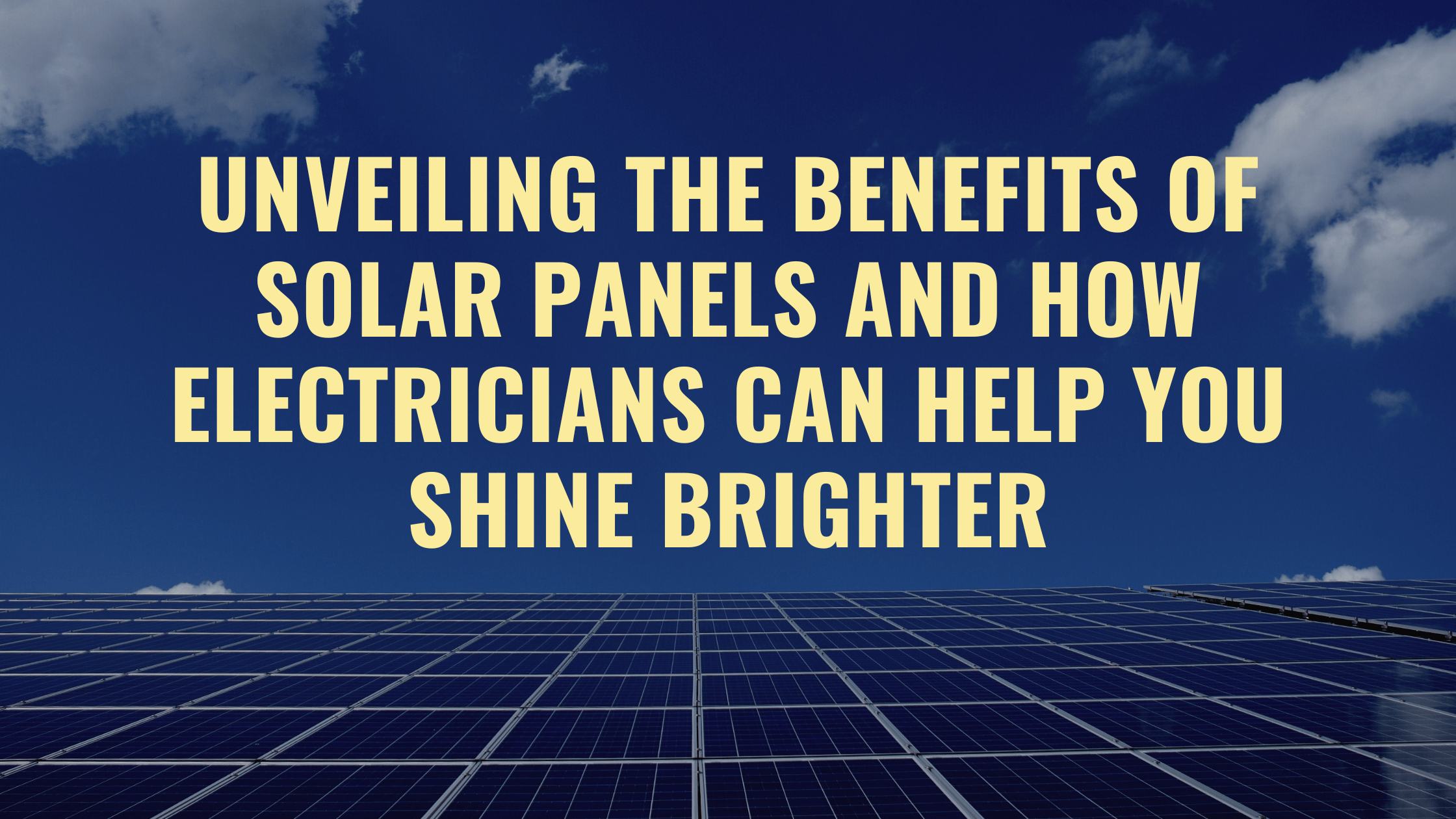Solar Power 101: A Beginner's Overview to Sustainable Energy Solutions
As the world increasingly shifts towards sustainable energy services, comprehending the principles of solar power comes to be necessary for both people and businesses. By discovering the advantages of solar technology, together with the economic incentives and setup procedures, one can gain a more clear perspective on how to properly integrate this sustainable source into their energy technique.
Understanding Solar Energy
At its core, understanding solar energy includes grasping the basic concepts of exactly how sunshine can be exchanged useful electrical energy. Solar power is originated from the sunlight's radiation, which can be taken advantage of with different modern technologies. The main mechanism for this conversion is the photovoltaic or pv effect. This phenomenon happens when sunlight strikes semiconductor materials, generally silicon-based, within solar cells. The power from the sunshine delights electrons in the semiconductor, permitting them to flow openly and create straight current (DC) electrical power.

Comprehending solar power also involves recognizing its environmental benefits. By using sunlight, we can reduce greenhouse gas exhausts and decrease air pollution, contributing to a more sustainable future. The developments in technology and effectiveness of planetary systems remain to improve their viability, making solar power an increasingly attractive option for international power requirements.
Kinds Of Solar Power Equipments
Various kinds of solar power systems are commonly used to harness solar power for electrical power generation. The main categories consist of solar (PV) systems, concentrating solar energy (CSP) systems, and solar thermal systems.
Solar systems make use of photovoltaic panels composed of silicon cells that transform sunshine directly right into electrical energy. These systems are flexible and can be set up on rooftops, ground mounts, or incorporated right into building products.
Focusing Solar Power systems, on the other hand, use mirrors or lenses to concentrate sunlight onto a small location, creating heat that drives a vapor turbine to create electrical power - Simply Solar Illinois. CSP systems are typically released in large power plants and need straight sunlight, making them less appropriate for over cast regions

Each kind of solar energy system has its distinct characteristics, applications, and viability depending upon geographic place, energy demands, and budget plan, making it important to evaluate alternatives based upon specific conditions. - Simply Solar Illinois

Advantages of Solar Power
Utilizing solar energy with various systems not just gives a sustainable way to generate electricity however likewise uses a wide variety of benefits. One of one of the most significant advantages is the reduction in greenhouse gas discharges, adding to a cleaner atmosphere and combating climate adjustment. Solar energy is renewable, indicating it is infinite and available as long as the sunlight radiates, unlike fossil fuels, which are finite and diminishing.
In addition, solar power can cause considerable cost savings over time. Homeowners and businesses can lower their electrical energy expenses substantially, and oftentimes, they may gain credit ratings for excess power created via web metering. Additionally, the solar sector creates work, from producing to installation, boosting local economies.
An additional compelling advantage is energy freedom. By producing their very own electrical energy, individuals and areas can minimize reliance on outside energy resources, improving strength versus changing energy costs and supply disturbances. Solar energy systems need marginal maintenance, making them a practical alternative for lasting energy generation.
Setup Refine Review
The installation process for solar power systems generally includes numerous crucial actions that make sure effective assimilation into a home. A detailed website assessment is carried out to examine the roof's positioning, shielding, and structural integrity, which are crucial to enhancing solar panel efficiency. Following this evaluation, the style phase begins, where a customized solar power system is set up based Get More Info upon the property owner's energy needs and preferences.
Once the design is finalized, the necessary permits and approvals are obtained from local authorities, guaranteeing compliance with policies. The actual installation involves mounting the photovoltaic panels on the roofing or ground, linking them to an inverter, and integrating the system with the residential property's electrical setup. This stage may likewise involve mounting battery storage space systems, depending on the layout.
With the installation full, the solar energy system can begin producing eco-friendly power, adding to sustainability and minimizing utility costs. This organized method makes certain that solar systems are both effective and reliable, maximizing their lasting benefits.
Financial Rewards and Financial Savings
Exploring the monetary incentives and savings related to solar power systems can considerably improve the allure of making the switch to sustainable power. Various rewards exist at government, state, and neighborhood degrees, designed to decrease the preliminary prices associated with solar installation. One of the most significant rewards is the government solar tax obligation credit, which allows property owners to deduct a portion of their planetary system installment prices from their federal tax obligations. Since 2023, this credit scores stands at 30%, providing considerable cost savings.
Along with tax obligation credit reports, lots of states provide refunds that can better decrease in advance costs. Some utility companies additionally give performance-based rewards, satisfying solar power production over time. Funding choices, such as solar financings and leases, enable consumers to mount systems with little to no deposit, making solar power much more accessible.

Lasting savings are one more important factor. By producing their very own power, homeowners can substantially reduce or perhaps remove their monthly energy expenses. In addition, solar systems can boost residential property worths, offering a strong roi. In general, the combination of motivations and savings makes solar power an economically eye-catching selection for lots of families.
Verdict
Finally, solar energy represents a crucial element of sustainable energy solutions, providing a pathway toward reduced carbon footprints and improved environmental security. The diverse kinds of solar energy systems, combined with considerable monetary rewards, assist in more comprehensive fostering amongst people and neighborhoods. Recognizing the installment procedures and advantages linked with solar energy equips stakeholders Recommended Site to make informed choices. Inevitably, the shift to solar energy not just promotes ecological responsibility but additionally promotes economic savings and power independence. useful source